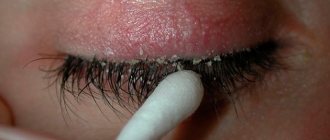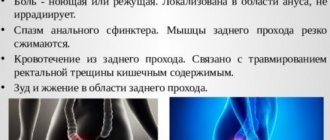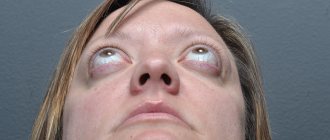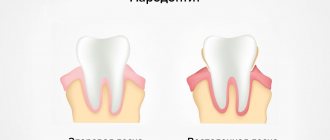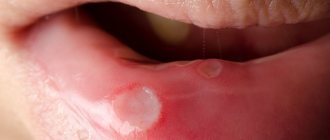Diarrhea (diarrhea) is one of the main reasons for adults to visit a doctor. Diarrhea refers to all cases of frequent (more than 3 times a day) bowel movements with the release of liquid, unformed feces. If symptoms last no more than 14 days, such diarrhea is considered acute, and malaise for more than 4 weeks is equivalent to chronic diarrhea. Every year in Russia, about 800 thousand cases of acute diarrhea due to intestinal infections are registered, and chronic diarrhea occurs on average in 7-14% of the adult population.
The best drugs for diarrhea.
September 21, 2021
3369
4.9
1
Content
- Causes of diarrhea
- Types of diarrhea
- 8 effective remedies for diarrhea
- Imodium Express
- Loperamide
- Smecta
- Sulgin Avexima
- Enterofuril
- Polysorb MP
- Linex
- Furazolidone
No one is immune from diarrhea: children, adults and the elderly. The main danger of diarrhea is dehydration, although it is considered a protective reaction of the body. Let's look at the causes and types of this condition, and also consider the most effective drugs for treating diarrhea. Read also The most effective probiotics for the intestines: top 5 How to choose a probiotic and for what problems it is prescribed.
Causes of diarrhea
Diarrhea is when the stool becomes loose or watery instead of normal. This phenomenon occurs frequently and usually goes away on its own within a few hours without treatment. It is impossible to identify the cause of rapidly passing diarrhea.
If diarrhea lasts longer than one day, we can talk about viral gastroenteritis, when the intestines are infected by a certain virus. This condition is also called intestinal flu. Other possible causes of diarrhea include:
- bacterial infection;
- poisoning of the body with waste products of bacteria (toxins);
- consumption of foods that disrupt the gastrointestinal tract;
- intolerance to some foods (celiac disease, lactose intolerance) or allergies;
- taking certain medications;
- radiation therapy;
- dyspepsia (problems with absorption of food).
There are several important criteria
things to look out for when it comes to diarrhea.
- Causes of diarrhea.
This is the main point. If the cause of diarrhea is an infection, the body thus tries to remove toxins, which (the waste products of bacteria). Conventional strengthening drugs will only worsen the patient’s well-being, increasing intoxication. Infectious diarrhea requires antibiotics. - Patient's age.
If a child has diarrhea, then he needs medications in the form of syrup, drops or lozenges. Children have a poorly developed muscle layer and a narrow esophagus, so there is a risk of regular tablets getting into the respiratory tract. And many tablet drugs are contraindicated for children.
Causes and treatment of diarrheaPhotos from open sources
Read also:
Top 5 best sorbents for poisoning Rating of the most effective and safe sorbents that help with poisoning and hangover syndrome.
Causes of loose stools
Episodes of loose stools that plague a person for one or several days are not a separate disease. This is just one symptom of functional, organic or neural dysfunction. Loose stools that persist for a long time may be accompanied by other clinical manifestations: abdominal pain and cramps, fever, chills, nausea, vomiting, dizziness. It is on the basis of a set of symptoms that one can most accurately determine the cause of loose stools.
The most common causes of diarrhea in adults are3:
- food allergies;
- lactose intolerance (almost instantaneous reaction to milk);
- intestinal infection;
- viral or bacterial infection;
- neurogenic factor (stress, neurotic disorders, emotional breakdowns).
Loose stools may also indicate pathologies of other organs, such as4:
- cystic fibrosis (a hereditary disease that affects a number of organs, from the liver to the gonads);
- pancreatitis (a group of diseases associated with inflammation of the pancreas);
- gastritis with secretion deficiency;
- oncological diseases;
- adrenal insufficiency;
- diabetes;
- hyperthyroidism (a syndrome caused by increased hormonal activity of the thyroid gland);
- cirrhosis of the liver;
- hepatitis;
- metabolic kidney diseases;
- hypovitaminosis (metabolic diarrhea).
Types of diarrhea
Diarrhea can be acute or chronic. Acute usually occurs due to infection and lasts no longer than two weeks. Among the causes of chronic diarrhea are irritable bowel syndrome, dietary habits, or a certain psycho-emotional state of a person.
- Infectious diarrhea.
This condition is caused by both viruses (for example, rotavirus), bacteria (E. coli, salmonella, etc.) or protozoa. Infectious diarrhea often causes fever, abdominal pain, nausea, vomiting, and deterioration in general health. You can often tell by looking at the stool which pathogen is present in the body. Greenish stool color is most likely salmonellosis, “raspberry jelly” stool is amoebic dysentery, etc. Usually, infectious diarrhea can be cured on your own. But if the condition only worsens, you need to consult a doctor. - Non-infectious diarrhea.
With such diarrhea there is usually no fever or abdominal pain. Non-infectious diarrhea is caused by stress, antibiotics, poor lifestyle and bad habits, vegetative-vascular dystonia, problems with the pancreas and diabetes. By the way, for diarrhea during antibiotic treatment, many doctors prescribe probiotics, but in fact, it is enough to simply consume more fermented milk products. Treatment for non-infectious diarrhea is to take pills that reduce bowel activity. Treatment with herbal remedies is also possible (gastrointestinal herbs, rose hips, oak bark, chamomile, etc.). It is important to normalize your lifestyle and try to be less nervous.
Since diarrhea removes a lot of fluid from the body, it is important to replenish it. And it’s better to drink rehydration solutions rather than water. If there is no appetite due to diarrhea, there is no need to eat (or force the child). If you have a normal appetite, it is better to follow a diet while you are treating diarrhea: liquid mashed potatoes, stewed vegetables, rice, light soups.
Read also How to treat dehydration: 5 solutions for rehydration What drugs for dehydration are most often prescribed by doctors?
First aid measures for diarrhea
If you experience diarrhea or other signs of gastrointestinal distress, do not delay seeing a doctor. The specialist will quickly make the correct diagnosis and prescribe treatment. However, before the doctor arrives, you can alleviate your condition:
● drink more fluids (water, dried fruit compotes, strong tea) to prevent dehydration
● give up heavy fatty foods, flour, sweets, spices and herbs, fresh vegetables and fruits
● eat more starchy soft foods - porridge, stewed vegetables, mashed potatoes, unsweetened baked goods made from premium flour
● drink enterosorbents (Sorbex, Enterosgel, Polysorb, Laktofiltrum)
Imodium Express
For non-infectious diarrhea, Imodium Express is often prescribed, the active ingredient of which is loperamide. The drug has a strengthening effect and can be prescribed in the complex treatment of infectious diarrhea. You can buy Imodium in the form of lozenges - to make the drug work faster, the tablet can be placed under the tongue. So if diarrhea has started acutely and you need emergency help, pay attention to Imodium Express.
Imodium Express
Catalent UK Swindon Zaidis Limited / Janssen-Cilag S, UK / Italy
The anti-diarrhea remedy Imodium Express dissolves on the tongue in just 3 seconds, does not require drinking water and has a pleasant mint taste.
Imodium helps stop diarrhea from the first use: the proven formula of tablets for diarrhea (diarrhea) slows down the time it takes for contents to pass through the intestines. Imodium helps preserve the natural intestinal microflora, preventing it from being washed out during diarrhea. from 144
5.0 1 review
39
- Like
- Write a review
When to call an ambulance
Diarrhea can be severe or be the first sign of serious gastroenterological or surgical pathology. To avoid complications, the patient is advised to seek emergency care.
Signs of deterioration:
● repeated vomiting that does not bring relief
● frequent and copious stools, accompanied by dehydration
● an increase in temperature over 39°C and no effect from standard antipyretic tablets
● the appearance of blood or pus in the stool
● impaired consciousness
Loperamide
In its action, Loperamide is identical to Imodium; it is also prescribed for functional intestinal disorders, when the cause of diarrhea is not an infection. But Loperamide, like other oral tablets, begins to act within 20 minutes. If you need a faster effect, it is better to choose “Loperamide” in capsules (there is powder inside, and the capsule itself is gelatin).
Loperamide
Grindeks, Latvia; OJSC "Nizhpharm", Russia; Biocom, Russia; Ozon LLC, Russia; Update, Russia; Veropharm / Lance-Pharm, Russia; JSC "Lekhim-Kharkov", Ukraine; Pharmacor Production LLC, Russia
Symptomatic treatment of acute and chronic diarrhea of various origins (allergic, emotional, medicinal, radiation; with changes in diet and quality of food, with metabolic and absorption disorders; as an adjuvant for diarrhea of infectious origin).
Regulation of bowel movements in patients with ileostomy. from 7
5.0 1 review
901
- Like
- Write a review
Treatment
Diarrhea is not a disease. This is just one of the symptoms of some pathological process occurring in the body. Only a doctor can determine the true cause of diarrhea and select the necessary treatment. The patient must understand this and in case of prolonged stool disorder, be sure to seek medical help.
For symptomatic treatment of diarrhea, doctors recommend diet and drug therapy1,3.
Diet
Diet therapy for diarrhea is aimed at inhibiting intestinal motor activity and normalizing the absorption of water and electrolytes1. Food should be as gentle as possible in composition and properties. It is recommended to exclude products that can mechanically or chemically irritate the gastrointestinal tract, cause fermentation and rotting: raw vegetables, whole grain flour products, coarse cereals, dairy products, prunes, dried apricots and plums, spices and seasonings, smoked meats and marinades. All dishes need to be steamed, boiled or stewed, chopped and ground.
It is extremely important that the diet fully covers the body’s needs for basic nutrients, vitamins and microelements. At the same time, the amount of protein is increased by approximately 30%, while carbohydrates and fats remain within the physiological norm3.
In order not to overload the gastrointestinal tract, meals should be divided - at least 5-6 times a day3.
If you are intolerant to certain food components, your doctor will recommend an elimination diet. For example, in case of lactase deficiency, it is recommended to exclude dairy products and products containing hidden lactose from the diet: bread, some sausages, seasonings, semi-finished products, etc.3.
Top
Drug therapy
Regardless of the cause of diarrhea, treatment may include the following medications as prescribed by your doctor:
- Enterosorbents are drugs whose active components are capable of binding water, various toxins and gases in the intestines and thereby contribute to the normalization of stool3.
- Probiotics and prebiotics that help restore healthy intestinal microflora.
- Enzyme preparations that compensate for the lack of the body’s own enzymes and thus improve digestion processes.
- Antidiarrheal drugs are medications whose action is aimed at regulating the mechanisms involved in the development of diarrhea.
Doctors may recommend loperamide preparations1,3 such as IMODIUM® Express6 as antidiarrheal agents. Loperamide helps normalize intestinal motility and the absorption of water and electrolytes6. Due to this, the stool becomes denser and stools become less frequent6.
IMODIUM® Express is approved for use by adults and children over 6 years of age6. The drug begins to act within an hour7, thereby helping to cope with the problem of diarrhea.
Top
The information in this article is for reference only and does not replace professional advice from a doctor. To make a diagnosis and prescribe treatment, consult a qualified specialist.
Literature
- Parfenov A.I. Diarrhea. // Regular issues of "RMZh" No. 7 - 1998 - Page. 6.
- Samorodskaya I.V. Recommendations for identifying the causes of chronic diarrhea in adults: British Society of Gastroenterology, 2021 - URL: https://glavterapevt.ru
- I. D. Loranskaya. Diarrhea in diseases of the digestive system // Attending physician. – 2007. – No. 6.
- E. B. Grishchenko. Irritable bowel syndrome in the practice of a general practitioner. // Medical advice. - 2012. - No. 9. — Page 63-67.
- D. P. Petrov. Irritable bowel syndrome // Consilium Medicum. 2009; 8: 40-43.
- Instructions for use of the drug IMODIUM® Express.
- A study by Ameri et al. "A multicenter, double-blind study: a comparison of the effectiveness of loperamide in acute diarrhea with two popular antidiarrheal agents and placebo," 1975.
Top
Smecta
This anti-diarrhea drug is an enterosorbent. “Smecta” is sold in sachets, in the form of a powder that needs to be dissolved in water. If a child has diarrhea, you can buy Smecta with some flavor, which will make it easier for the baby to take. Prescribed remedy for heartburn, bloating and diarrhea. The medicine has virtually no side effects or contraindications.
Smecta
IPSEN (Bofur Ipsen), Ukraine
Symptomatic treatment of pain associated with diseases of the esophagus, stomach, duodenum;
intestinal colic; acute and chronic diarrhea (especially in children). from 123
3.0 3 reviews
1092
- Like
- Write a review
Sulgin Avexima
This is one of the most frequently prescribed remedies for infectious diarrhea, which has long been present on the Russian market. "Sulgin Avexima" perfectly suppresses the proliferation of pathogenic microflora. However, doctors do not recommend taking this drug for a long time, since it interferes with the absorption of vitamins and nutrients in the intestines. After a short course of treatment with this drug, it is recommended to take a vitamin complex. You can buy Sulgin Avexima with a prescription and only on the recommendation of a doctor.
Sulgin Avexima
JSC Avexima, Russia
Sulgin Avexima is an antimicrobial bacteriostatic agent.
The mechanism of action is due to antagonism with para-aminobenzoic acid (PABA) and competitive inhibition of dihydropteroate synthetase, which leads to disruption of the synthesis of tetrahydrofolic acid, necessary for the synthesis of purines and pyrimidines. Inhibits the growth of Escherichia coli and reduces the synthesis of thiamine, riboflavin, and nicotinic acid in the intestines. SULGIN has a bacteriostatic effect on Streptococcus spp., Staphylococcus spp., Escherichia coli, Shigella dysenteriae, Proteus vulgaris. from 52
333
- Like
- Write a review
What is dysbiosis
A child is born sterile; there are normally no bacteria in his body. The intestines and skin are colonized gradually, starting from the first attachment of the baby to the breast. The older the child gets and the more varied his food, the more different bacteria enter the intestines and form its microflora. In adults, the composition of microorganisms stabilizes, but becomes diverse. It can be compared to a fingerprint; despite the similarities, it is not repeated in any person.
Among intestinal bacteria, there are hundreds of types of good microorganisms, but normally there are also bad ones, the growth of which the body can restrain. There are three types of microbes:
- dominant - present in all healthy people, these include eubacteria, bacteroides, bifidobacteria, lactobacilli;
- non-permanent species - not found in everyone or under certain conditions, these are streptococci, Escherichia coli, Proteus, Cytobacter;
- transient species - sometimes enter the intestines, but do not stay there for a long time; these are types such as yeast fungi, clostridia, and Pseudomonas aeruginosa.
Good microorganisms are the dominant bacteria, they should be the majority. Thanks to the presence of normal microflora, food is digested. Bacteria help ferment some indigestible foods and participate in the absorption of vitamins, amino acids, and sugars. They themselves also synthesize vitamins B, K, and fatty acids. Therefore, with dysbacteriosis, signs of hypovitaminosis appear.
Good bacteria act as human shields. They form a protective layer on the intestinal wall, which does not allow pathogenic microorganisms to attach and limits their supply of nutrients. The immune function is to train immune cells and regulate its response to the penetration of foreign microorganisms or proteins.
But with a change in the ratio of bacteria, an increase in the number of transient species, and the appearance of yeast fungi, dysbacteriosis develops. It cannot be called a disease, but a person’s well-being is impaired. With dysbacteriosis, there are no pathogenic microorganisms in the intestines (Salmonella, Vibrio cholerae, Yersinia, pathogenic Escherichia, as well as viruses). Changes in composition occur due to an imbalance of normal flora and an increase in the concentration of opportunistic bacteria and the appearance of fungi.
Enterofuril
This antidiarrheal drug has a wide spectrum of action. Unlike other antimicrobial agents, Enterofuril does not suppress the beneficial intestinal microflora, but even restores it. The drug is sold in the form of a suspension, which is not absorbed into the blood, but works in the lumen of the gastrointestinal tract, destroying the infection. That is why the medicine has minimal side effects. And do not be afraid of the rich shade of the drug - this is not a dye, but the natural color of the active substance - nifuroxazide.
Enterofuril
Bosnalek, Bosnia and Herzegovina
Enterofuril is a broad-spectrum antimicrobial agent, a derivative of 5-nitrofuran.
Active against gram-positive microorganisms (Streptococcus aureus, Staphylococcus pyogenes, Clostridium), gram-negative enterobacteria - E. coli, Salmonella spp., Shigella spp., Klebsiella spp., Enterobacter spp., Vibrio cholerae, Campylobacter jejuni, Edwarsieila, Citrobacter, Yersinia enterocolitica . from 297
5.0 10 reviews
1860
- Like
- Write a review
Causes
The intestinal microflora in adults is in a state of dynamic equilibrium. It contains certain bacteria, which make up the majority, and about 3% of microorganisms that change their composition. Normally, fluctuations occur under the influence of food and eating habits. The microflora is affected by the predominance of sweets and fatty foods in the diet or predominantly plant foods.
Research shows that fatty foods inhibit bifidobacteria and enterococci, but under these conditions bacteroides multiply. A predominantly carbohydrate diet stimulates the proliferation of bifidobacteria and the total number of microorganisms. But these changes are temporary and do not lead to the appearance of symptoms of dysbiosis. They disappear on their own after a change in diet.
Intestinal dysbiosis in adults appears as a result of other diseases. The main causes of microflora disturbance are:
- long-term treatment with antibiotics;
- pathologies of the overlying parts of the digestive tract;
- long-term mono-diets and constant poor nutrition;
- intestinal infections.
Broad-spectrum antibiotics act nonselectively. They inhibit the growth or cause the death of all microorganisms. The longer the course of treatment, the higher the likelihood that dysbiosis will develop after it. Tetracycline antibiotics are especially dangerous. They significantly inhibit the proliferation of intestinal microflora, which leads to hypovitaminosis B, K, and an increased risk of bleeding.
Gastritis, cholecystitis, pancreatitis, hepatitis or biliary dyskinesia can lead to the development of dysbiosis. Cirrhosis of the liver, tumor processes in the stomach or ulcers are dangerous. These pathologies are accompanied by impaired digestion of food and enzyme production. Therefore, food enters the intestines insufficiently processed and cannot serve as a breeding ground for bacteria. Some of them die, and a seemingly pathogenic flora takes their place.
A fasting day, when the diet is based on the consumption of one food product, does not harm the body. But a mono-diet that lasts several weeks or becomes a way of life can lead to dysbiosis. Constant consumption of food containing simple carbohydrates and animal fats is dangerous. These are sweet, flour, fast food dishes. Such a diet inhibits the reproduction of normal flora, fermentation processes are activated in the intestines, and a large number of yeast fungi appear.
Food infections cause double damage to the intestines. They damage the mucous membrane, and antibiotic treatment kills beneficial bacteria. Therefore, recovery from illness is especially difficult.
Smoking has a negative effect on the condition of the intestines. It creates conditions for the proliferation of yeast, so smokers often suffer from unpleasant symptoms.
Polysorb MP
The anti-diarrhea drug “Polysorb MP” is an enterosorbent that binds to toxins in the gastrointestinal tract and helps them exit the body. Such products are distinguished by the fact that they are not absorbed into the blood, so they practically do not cause “side effects”. Allergic reactions and disruption of the synthesis of vitamins in the gastrointestinal tract are only sometimes possible (and only if the drug is taken for more than two weeks). You can buy Polysorb MP in the form of a powder that is diluted in water. "Polysorb MP" for diarrhea can be taken by children, pregnant and lactating women, as well as the elderly.
Polysorb MP
CJSC "Polysorb", Russia
Acute and chronic intoxication of various etiologies in children and adults;
— acute intestinal infections of various etiologies, including foodborne toxic infections, as well as diarrheal syndrome of non-infectious origin, dysbacteriosis (as part of complex therapy); - purulent-septic diseases accompanied by severe intoxication; - acute poisoning with potent and toxic substances, incl. medications and alcohol, alkaloids, salts of heavy metals; — food and drug allergies; - hyperbilirubinemia (viral hepatitis and other jaundices) and hyperazotemia (chronic renal failure); - residents of environmentally unfavorable regions and workers of hazardous industries for the purpose of prevention. from 43
5.0 1 review
840
- Like
- Write a review
Diseases accompanied by frequent loose stools
Chronic diarrhea in the vast majority of cases is non-infectious in nature2. Its causes are most often functional disorders in the gastrointestinal tract and diseases of the digestive organs: liver, biliary tract, pancreas, small and large intestines2.
Among the causes of loose stools are 1,2:
- IBS is a functional gastrointestinal disorder accompanied by diarrhea;
- malabsorption syndrome, characterized by impaired digestion and absorption of essential nutrients;
- chronic enteritis - inflammation of the small intestine or its ischemia (deterioration of blood circulation);
- inflammatory diseases of the colon (nonspecific ulcerative colitis and Crohn's disease);
- chronic pancreatitis with deficiency of pancreatic enzymes;
- enzyme deficiency leading to lactose intolerance;
- celiac disease, or intolerance to gluten – a grain protein;
- violation of the metabolism of bile acids and an increase in their concentration in the intestine;
- gastrointestinal tumors;
- alcohol abuse;
- dietary habits: excessive consumption of caffeine and caffeine-based energy drinks, products containing artificial sweeteners;
- side effects of certain medications: antibiotics, non-steroidal anti-inflammatory, hypoglycemic and magnesium-containing drugs;
- dysbiosis, or disturbance of intestinal microflora;
- diabetes;
- lymphoma is a malignant tumor of the lymphatic system;
- consequences of removing part of the small intestine;
- hyperthyroidism – excess thyroid hormones;
- pancreatic cancer1,2.
Top
Irritable bowel syndrome
IBS most often occurs due to emotional or physical stress, anxiety or depression4,5. Hormonal imbalances, infections, genetics and various environmental factors all contribute.4. The disease is accompanied by a change in the motor activity of the gastrointestinal tract and an increase in pain sensitivity - active intestinal peristalsis causes discomfort and pain in the abdomen. All this leads to changes in the frequency of bowel movements and stool consistency.
In adult IBS, loose stools can be a persistent or transient symptom. The disease can occur in the form of diarrhea, constipation, or alternating constipation and diarrhea.
Distinctive signs of IBS:
- sudden urge to defecate, which occurs due to stress or emotional tension;
- cramping pain in the abdomen that occurs shortly before defecation, migrating as the intestinal contents move;
- disappearance of symptoms of intestinal discomfort after defecation;
- frequent loose stools (with IBS accompanied by diarrhea);
- no symptoms at night;
- diarrhea after constipation (with a mixed form of IBS), in which first dense, fragmented, and then mushy and liquid feces are released;
- absence of blood, mucus, pus and undigested food debris in the stool;
- normal body temperature and general condition;
- stable body weight, despite frequent loose stools4,5.
Important! In IBS, there are no infectious or organic diseases of the gastrointestinal tract and other organs of the digestive system4,5. Only a doctor can exclude them based on the examination results.
Top
Malabsorption
Prolonged and frequent loose stools are a typical sign of malabsorption syndrome.
Malabsorption develops in many diseases of the digestive system, is characterized by impaired absorption of nutrients in the small intestine and can be primary or secondary.
Primary malabsorption based on genetically determined conditions:
- malformations of the small intestine, as a result of which the processes of absorption of proteins, fats and carbohydrates are disrupted (collagen and tropical sprue);
- enzymopathies, that is, the absence or impairment of the activity of enzymes responsible for digestion, which occurs with lactose and gluten intolerance.
Secondary malabsorption develops against the background of acquired diseases of the digestive system, after surgical operations on the gastrointestinal tract, with food poisoning and intestinal infections, immunodeficiency and other conditions.
Malabsorption in malabsorption syndrome can be partial or general. When partial, the absorption of individual nutrients becomes difficult3. Thus, with lactase deficiency, problems arise with the digestion and absorption of lactose, but the remaining components of food are absorbed normally. General disturbances concern the absorption of all nutrients: proteins, fats and carbohydrates3. This situation occurs, for example, with chronic pancreatitis and deficiency of pancreatic enzymes, with chronic enteritis and inflammatory changes in the walls of the small intestine.
Lack of protein in the body leads to loss of muscle mass, anemia, edema, and fluid accumulation in body cavities3.
Carbohydrate deficiency provokes attacks of hypoglycemia, that is, a periodic drop in blood sugar levels - severe weakness, dizziness, lethargy and fainting3.
If fat absorption is impaired, fat-soluble vitamins necessary for the functioning of the endocrine system are no longer absorbed3. This leads to decreased thyroid function3.
Top
Linex
Linex is sold without a prescription and is available in the form of drops, powder and capsules. This is a probiotic that contains live bacteria L. Acidophilus, B. infantis and E. Faecium. They are quite enough to normalize the intestinal microflora and improve bowel movements. "Linex" is prescribed in the complex therapy of microbial and viral intestinal infections, as well as after treatment with antibiotics. Remember that the drug is incompatible with alcohol and should not be washed down with hot liquid.
Linex
Sandoz (Sandoz), Germany; Lek Pharmaceuticals dd., Slovenia
Linex is a combination drug containing 3 different types of lyophilized viable lactic acid bacteria from different parts of the intestine, which are part of the normal intestinal flora, maintain and regulate the physiological balance of the intestinal microflora.
from 153
4.0 1 review
1085
- Like
- Write a review
Furazolidone
You can buy “Furazolidone” (with the active ingredient of the same name) for diarrhea without a prescription; the drug is available in tablet form. This antimicrobial agent effectively fights pathogens in the intestines, as well as protozoa. Furazolidone has a wide spectrum of antimicrobial action and also strengthens the immune system. The drug is prescribed for dysentery, microbial infections, and for diarrhea with giardiasis. Contraindications: pregnancy, breastfeeding, age under 3 years, severe kidney disease. As for side effects, we recommend that you carefully read the instructions for the drug.
Furazolidone
JSC Avexima, Russia; Marbiopharm, Russia; "Moskhimfarmpreparaty" named after. N. A. Semashko, Russia; YuzhPharm, Russia; Update, Russia; JSC Dalkhimfarm, Russia; OJSC Borisov Plant of Medical Preparations (Borimed), Belarus
Furazolidone is an antibacterial drug.
Used for the treatment of patients with infectious diseases of the gastrointestinal tract, genitourinary system, and skin, in particular: bacillary dysentery, typhoid, paratyphoid, enterocolitis, giardiasis, diarrhea of infectious etiology, food poisoning, trichomonas infection, including trichomonas colpitis , as well as vaginitis, urethritis, cystitis and pyelitis, patients with infected wounds and burns. from 36
5.0 1 review
596
- Like
- Write a review
